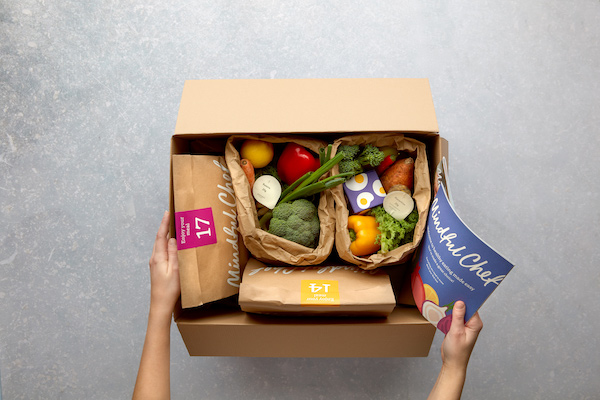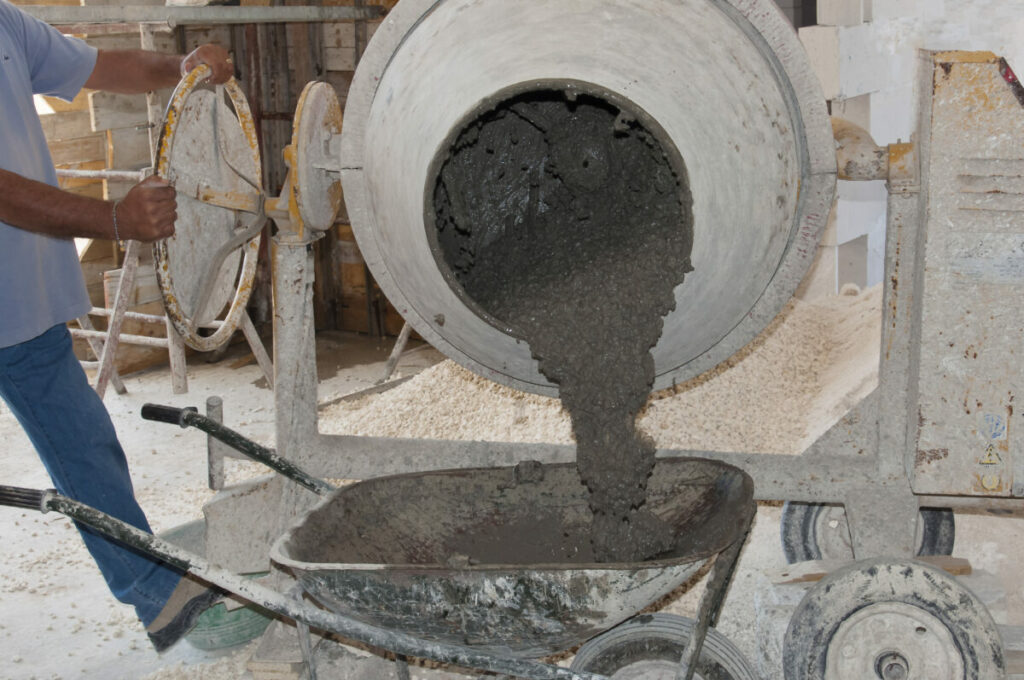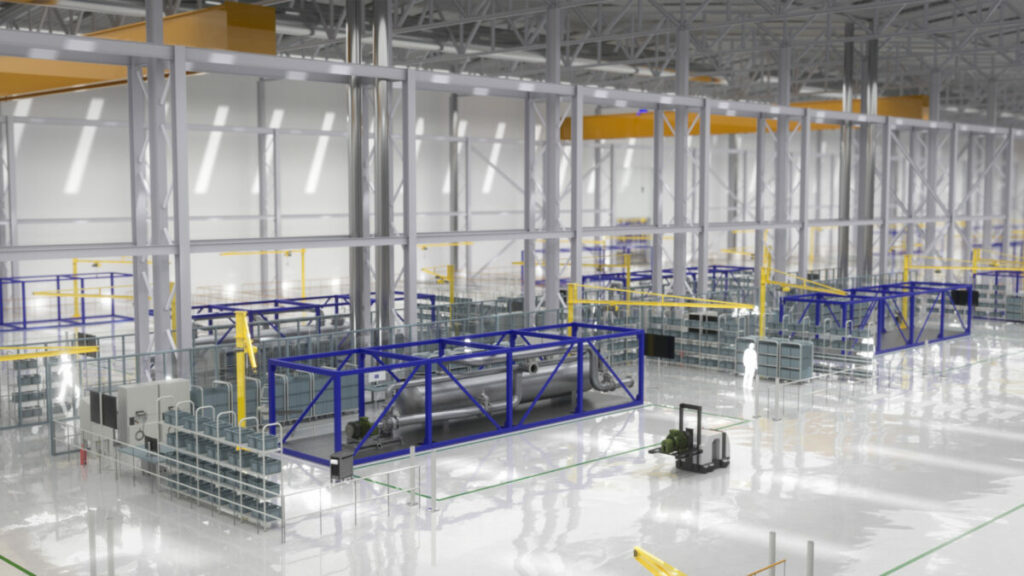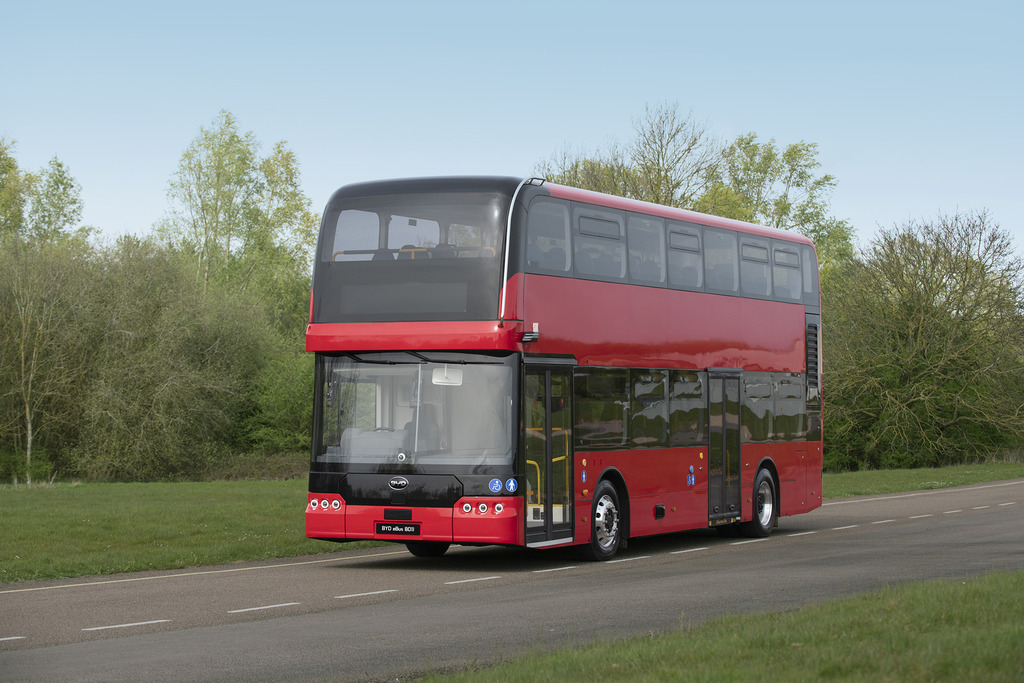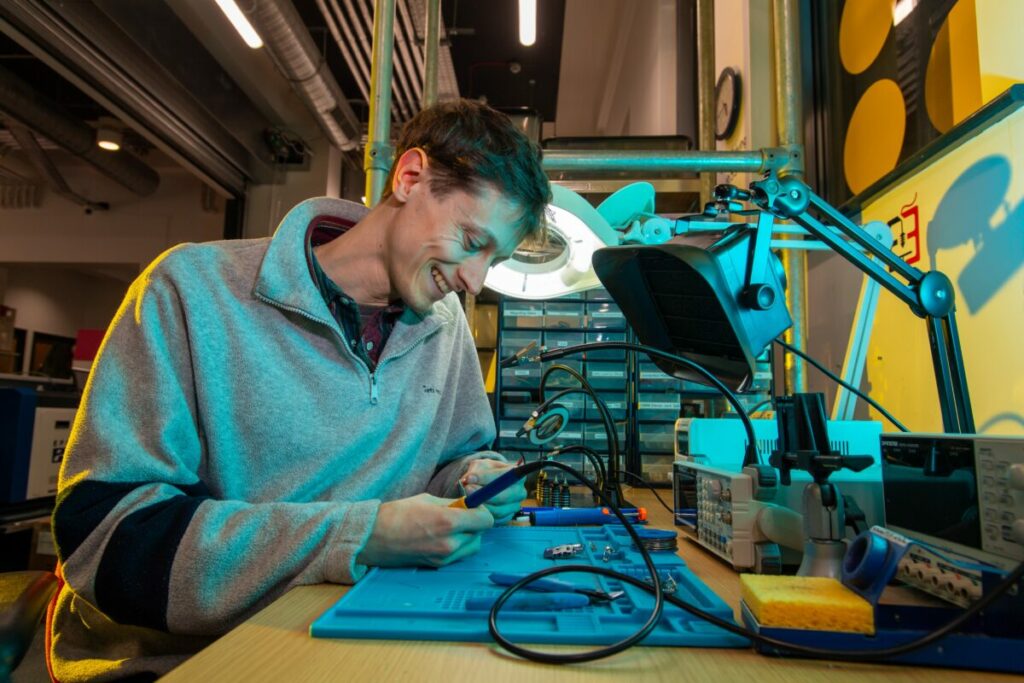Mindful Chef co-founder Myles Hopper shares insights on how the meal kit brand is setting industry benchmarks in sustainability.
The journey of gathering food has evolved just as much as humans have – from hunting animals to navigating supermarket aisles without getting caught in avoiding trolley wars.
The Covid-19 lockdown brought even further changes to the way customers do their grocery shopping, with products arriving within minutes on the back of a Deliveroo bike.
But while food is becoming more accessible in some societies, it’s having an increasingly negative affect on the environment.
The current food system is a major contributor for climate change and is responsible for 30% of greenhouse gases and 70% of nature loss globally.
Recognising a need for change Mindful Chef co-founder Myles Hopper says: “We need to adapt the way that the food system is working to make it more sustainable.”
Hopper indeed has been changing the food system with Mindful Chef meal kits. The company, which was the first meal kid provider to print how much carbon emissions are created from its dishes, is deliver both growth – and environmental improvements.
Last year, it saw an eye-watering 2069% increase in new customer sign ups over last year and has manged to reduce its carbon intensity by 15% since 2020.
“Meal kits are a fantastic way to use resources more efficiently, promote a healthier, more sustainable lifestyle and diet, and reduce food waste,” Hopper says.

Mindful ways to reduce food waste
Food waste is indeed one of the industry’s biggest challenges. The UK wastes approximately 9.5 million tonnes of food every year, with almost 2 million tonnes of waste coming from the food industry.
Mindful Chef keeps food waste under control as it produces 51% less than supermarkets by taking orders up to eight weeks in advance.
“We can predict what people are going to order as we have algorithms based on consumer behaviour,” says Hopper.
“Our buying teams keep in constant contact with our suppliers to keep up to date with how much of a product we need to order. So, the amount of food that goes to waste is very low.”
Mindful Chef donates any edible leftovers to London-based food redistribution charity The Felix Project.
“Not only does our excess food go there but we also help the organisation and help to run charity days,” shares Hopper.
Any food that isn’t edible is turned into fertilizer.
Subscribe to Sustainability Beat for free
Sign up here to get the latest sustainability news sent straight to your inbox everyday
Plastic waste at Mindful Chef
Elsewhere, Mindful Chef is working to reduce waste with its packaging – inside and out of its meal kits.
“We’ve swapped all sorts of things inside our boxes, from turning our tins into tetra and plastic sachets to recyclable paper,” says Hopper.
Currently 89% of its packaging is recyclable, with 55% recyclable at curbside and 34% in large supermarkets.
Just over 10% of Mindful Chef’s packaging isn’t recyclable due to health and safety concerns.
“At the moment, you can’t recycle protein-related packaging and that’s down to health and safety,” shares Hopper.
“It’s an infrastructure problem. I’d like to see more investment put into schemes where local councils are able to accept plastic packaging that you can’t recycle at the moment.”
Implementing carbon labelling
As many food manufacturers jump on the carbon labelling bandwagon, Mindful Chef was the first meal kit provider to print how much emissions are created from certain dishes.
“We have a range of low carbon recipe options that generate less than 1.6kg of emissions,” Hopper says.
“We want to allow customers to make an informed decision about their meal choices and how they can reduce their carbon footprint.
“About 50% of our menu adheres to low carbon recipes every week thanks to how we design our recipes and source our ingredients.”
While the brand hasn’t directly seen customers picking meals based on carbon labelling, its definitely had an impact on its 15% carbon reduction.
“We’ve sold 3 million low-carbon recipes since launching the labelling in 2020,” Hopper adds.
Plans for 2024
Looking ahead to 2024, the company plans to support suppliers adopt regenerative agricultural practices.
Last year the brand introduced a Regenerative Farming Programme where it supported its suppliers to help them with upfront financial costs and expert advice.
“Stourgarden, who supplies millions of onions to us, is the first farm we invested in and we’ve seen great changes in crop rotation and other different practices,” Hopper says.
“Good work doesn’t happen alone and we enjoy collaborating with suppliers who have the same sustainable values as us.”


